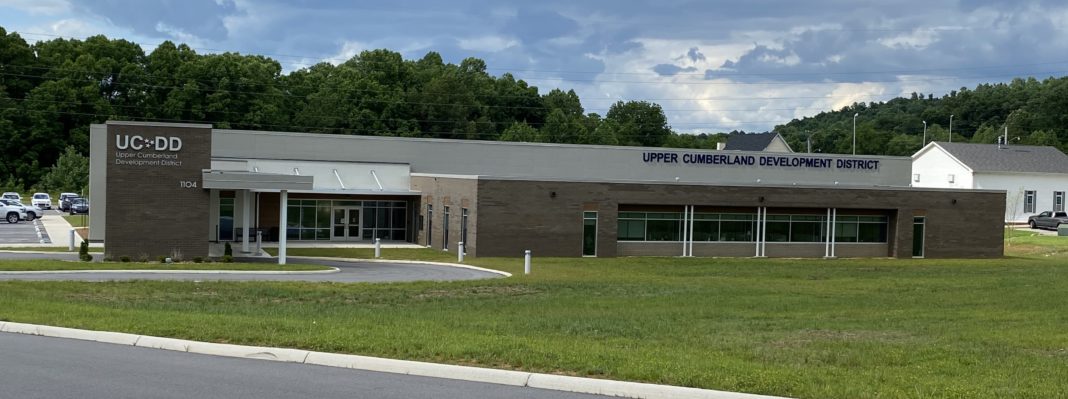By Michelle Price
Special to the UCBJ
COOKEVILLE – The Upper Cumberland Development District (UCDD) will be able to provide up to $5.06 million in low-interest disaster loans to businesses across the Upper Cumberland after a vote by the UCDD board on Wednesday.
During Wednesday’s meeting of the Executive Committee, UCDD Executive Director Mark Farley announced that the Economic Development Administration (EDA) had reached out to UCDD about new funding opportunities as a result of the EDA’s Coronavirus Aid, Relief, and Economic Security Act (CARES) recovery assistance.
“The Economic Development Administration has long been a partner of ours,” said Farley. “We’ve administered programs for them for a long, long time at the Upper Cumberland Development District. They have offered us another $5 million to start another revolving loan fund…the caveat on that is we have to get it out the door in 24 months.”
EDA is encouraging UCDD to loan this money out to businesses that have been impacted by COVID-19 at low interest rates of 1-2%. The maximum loan amount would be $1,250,000 with seven- to 10-year terms on equipment and 15- to 20-year terms on buildings. These loan funds could potentially be used for working capital loans also.
Megan Choate oversees the business loan program at UCDD. She anticipates the new loan program should be ready in 45 to 60 days. The board voted to apply for the funding, but it is a non-competitive application, so as soon as paperwork is approved and processed, the UCDD board will be ready to officially approve the loan policies and procedures.
“We don’t want to get in a position where we are competing against banks,” said Farley. “Obviously that is not our role. Megan and I have been working with many of the banks that have a regional presence and trying to find out how we can partner with them. We’re seeing a lot of opportunity.”
The banking world has changed quite a bit in the past 10-15 years. With the introduction of the Sarbanes–Oxley Act of 2002, banks were required to keep a more diversified portfolio of loans, sometimes prohibiting them for loaning money for good loans to companies that were just in the wrong business sector.
“Megan and I have been working with the banks,” said Farley. “They feel they can work with us to help supply some loans that they would love to make and want to make, but due to regulations, they can’t take that loan on at the current time. Our goal is to let us take on the loan and if they can refinance in five to six years down the road, then I’m fine with that.”
Once the loans are repaid, the payments go into the regular UCDD revolving loan program and are no longer subject to the rules of the disaster loan program and would be loaned at traditional rates.
There are no special qualifications for this disaster RLF program.
“It can be any client we have traditionally dealt with,” said Farley. “It can be commercial ventures. It can be a retail situation. It could be manufacturing. It could be healthcare or any number of things. We’re not limited on who it is. The key is – are we creating jobs, are we retaining jobs, are we addressing companies that have a need due to everything that’s gone on in the economy over the last two to three months.”









